By Shkëlqim Abazi
Part sixteen
Memorie.al / I were born on December 23, 1951, in the black month, of the time of mourning, under the blackest communist regime. On September 23, 1968, the sadistic chief investigator, Llambi Gegeni, the ignorant investigator Shyqyri Çoku, and the cruel prosecutor, Thoma Tutulani, massacred me at the Department of Internal Affairs in Shkodra, they split my head open, blinded one of my eyes, deafened one of my ears, after they broke several of my ribs, half of my molars, and the thumb of my left hand, and on October 23, 1968, they took me to court, where the unfortunate Faik Minarolli gave me a ten-year political prison sentence. After they cut my sentence in half, because I was still a minor, sixteen years old, on November 23, 1968, they took me to the political camp of Reps and from there, on September 23, 1970, to the Spaç camp, where on May 23, 1973, in the revolt of the political prisoners, four martyrs were sentenced to death and executed by firing squad; Pal Zefi, Skënder Daja, Hajri Pashaj and Dervish Bejko.
On June 23, 2013, the Democratic Party lost the elections, a perfectly normal process in the democracy we claim to have. But on October 23, 2013, the General Director of the “Rilindja” government sent Order No. 2203, dated 23.10.2013, for; The dismissal of a police employee. So Divine Providence was intertwined with the neo-communist “Rilindja” Providence and, precisely on the 23rd, they replaced me, no more and no less, with the former Security operative of the Burrel Prison. What could be more meaningful than that?! The former political prisoner is replaced by the former persecutor!
The Author
SHKËLQIM ABAZI
Continued from the previous issue
Rreps
(Forced Labor Camp)
Memoirs
As my friends told me, I had suffered a state of shock; I had fallen, so to speak, into a clinical death. The cause, according to the doctor, was severe food poisoning, because after many months, I had eaten excessively, but the cold from the bath I took carelessly had more of an impact. Vomiting and diarrhea had caused a pronounced lack of fluids and general physical weakness. Although I still felt frail and had no strength, after three days of intensive care, I was discharged from the infirmary.
Finally, I returned to my bunk, next to the old men. The care and dedication of the doctor and nurse, the commitment of my friends, and even of others I was seeing for the first time, gave me strength and restored my optimism. I started to take a few steps, at first slowly, leaning on the walls of the beds, and then, outside in the yard, next to my friend, Ladi. The cold winter wind that hit my face brought me back to the bitter reality I would have to face. On the third day after leaving the infirmary, Dilaver Minxhai, a kind of patriot of mine, born in Gjirokastër but married to a woman from my neighborhood in Berat, provided me with extra medicines that would serve for my further recovery.
I will talk about Dilo below, because with his frugal Gjirokastër nature, he was there for everyone a little, which had made him the most sought-after person in the Rreps camp. His old cowhide bag would always be full of first-aid medicines that the needy required, because the overwhelming majority of the prisoners there were either frail old men or chronically ill, and as such, they always sought Dilo’s services. I spent November 28th, the 56th anniversary of the declaration of Independence, lying on my bed, between Uncle Esheref and Father Vaska. That day, in contrast to the others, I noticed the prisoners were better dressed, despite being in prison conditions. They went and came, visiting each other and wishing out loud:
“Happy Flag Day!” one would wish.
“Happy next year!” the other would reply.
“Next year with our families!”
“With a flag without a star, in a free Albania!”
Endless wishes buzzed throughout the barrack. They were some unknown formulas that I was hearing for the first time. Some of my countrymen came to visit me, too, from Berat, Skrapar, the Dumre area, from Lushnja and Mallakastra, but also others. I distinguished them by their dialects and characteristic clothes. They didn’t know who I was, but maybe as acquaintances of the family, with old ties of friendship, with my father or grandfather, they respected me. Arrivals and departures didn’t make an impression there, because the prison-van would visit us even twice a week, bringing new prisoners, taking the old and sick, and leaving. So, these comings and goings made little or no impression in that environment.
But my arrival at the political camp of Rreps had stirred the waters a bit. It attracted the attention of the prisoners for the very fact that I was the youngest political prisoner to set foot there, because usually minor convicts were sent to the Zejmen camp. The sudden illness and unexpected hospitalization in the camp infirmary made my name go from mouth to mouth. But the main merit “for this quick recognition” belonged to Emini, the lame depot manager who, with his slightly exaggerated accounts of our meeting and conversation on the first day, had increased curiosity among the prisoners.
Even my friends from the suffering in the Shkodra cells, who did not leave my bedside in the infirmary for three days in a row, made a modest contribution. But, especially the “garrulous” old men, who, under the enthusiasm of the unexpected tutorship, had turned into “town criers” for my interests. Since I felt helpless, on that November 28th, my bunkmates, Uncle Esheref and Vaska, stayed with me almost all day. Sulua and the good Lab, Daut Runa, also joined them. One by one they took on the role of the host, receiving and seeing off the friends, and even brought with them a few things for treats, a pack of cigarettes, or a pouch of tobacco, because I had nothing.
Visitors would come, meet the old men, and meet me, wish them a happy Flag Day, and wish me a speedy recovery, and, as they left something wrapped in cement sack paper or in an aluminum bowl, they would leave, and then others would come and repeat the same ritual. In front of my bunk, a painter from Korça had painted a flag with an eagle on a small red cloth, without the red communist star. He had fixed it on a thin stick and had stuck it at the top of the stairs.
When I saw the old men who came and knelt before the symbol of the nation, wishing each other a strange passion that they accompanied with some theatrical gestures and then, in groups, talked with special reverence, about events and individuals related to this marked day, I was stunned. I don’t know why a shadow of doubt arose in me, that they were playing hypocritical games! But the dichotomy was not immediately resolved, because I saw that when they evoked facts and dates, events previously unheard of for my ears, or even known ones that I had learned inside out, their faces expressed a surprising nostalgia.
When they mentioned the countless sacrifices and the many martyrs who fell under the shadow of that Flag, I saw them tear up. It was clear that they were influenced by some sublime emotions that touched the depths of their souls and made them shed pure tears. Sick, I stayed and racked my brain: “How should I interpret these feelings of these elderly men, who, even in difficult prison conditions, nourished this boundless love for the Flag and the country? When this very country had become a stepmother to them and had turned their homeland into HELL!” Of course, I was not able to give a qualified answer to these questions, but simply according to my logic:
“They are incorrigible nostalgics! They live with the memories of their early youth and as such, they are hostage to the past years, of the golden age!” I concluded. We were in the late sixties. An era was setting. The twenty-year-old idealists of the turbulent year of 1912, who passionately followed the Old Man of Vlora as he led them with the National Flag, had now entered deep old age. But these former young people who then experienced the horrors of the Balkan War and even more, in their twenties, filled the ranks of the freedom fighters that shed blood for this Flag, in the trenches of Kote and the coast of Vlora, were now getting old. Grown up, matured, and aged under the shadow of this Flag, they had sacrificed a lot for its defense, and even a part of their relatives had reddened it with their blood.
With the light of these reasonings, I tried to justify the nostalgia and some of the reasons that drove these old men to their adoring delirium towards the symbol of the Nation. Of course, these reasons seemed sufficient to me at that time to justify their weakness because I still could not perceive the Flag phenomenon in all its dimensions. Years would pass, when I would experience and witness one of the most major events, the Spaç revolt of May 21, 1973, where seven hundred men would stand in defense of the authentic Flag, of whom four would pay with their blood and lives, and over eighty others with long prison sentences; my judgment on this matter would change completely.
But this would belong to a later period, where with the passage of years the principles would also change. So, I had to taste the sweetness of the ideal, which until then I had not known because they had not nurtured it in us! The day passed almost calmly, with the exception of the two moments of roll call, in the morning and in the afternoon, when the swarms of policemen entered the camp like lunatics, to the symphony of snakes, and kept us in line for over two hours. They even brought me out, despite my medical report for bed rest. The guard officer, the ignorant man from Lushnja, Xhevdet Balla, did not take into consideration Doctor Çitozi’s report and didn’t care about my health condition. Sick as I was, I had to face the cold currents of the wind and the harshness of the police.
I spent a restless night. Fragments of conversations, from those that my guests had during the day, were reproduced at night. Embodied in images, multi-colored crowds paraded, like unpersonalized extras in mass films. Fragments of battles unfolded on a fluid, almost cosmic terrain. Countless enemies, with gnashing teeth, like the fangs of rabid beasts, bit the ribs of the Homeland from all four sides. Everywhere was black, black, and plague!
As the Flag of the Nation waved proudly, the enemies climbed the battlements of some castles without outlines and rushed towards it, trying to pull out the spear stuck in the ether. The foreign soldiers appeared to me sometimes as Serbian Ustashe, sometimes as Greek Andartes, with knives between their teeth, sometimes as big-breeched Turks, à la Haxhi Qamili, and then some short pipers with long socks would sprout.
But in every case, facing these hordes stood the defenders of the Flag, some heroic men like jagged rocks; big-mustached, with white plis hats on their heads, with fustanellas or with breeches. The battles ended with a multitude of killed and maimed, but no blood was to be seen anywhere…! At the peak of this phantasmagorical clash that took place on the undetermined battlefield of my imagination, simulated by fever, someone shook me by the shoulders.
“What’s wrong, man? You’re talking nonsense?” It was the priest who was wiping my sweaty forehead with a piece of cloth. I opened my eyes in a daze. “Why aren’t you sleeping, man, aren’t you well?!” Under the dim light that fell from the lamp hanging from the fiber ceiling, my eyes couldn’t make out the Flag. As if startled, I stared at the bed opposite. Emptiness.
“Oh God, they must have pulled it out!” My body trembled, my heart thumped as if it wanted to break the cage of my chest and take flight. “What have they pulled out?” “The Flag!” “What did you say?” It took me a moment to collect myself: “I don’t know, I was seeing a scary dream!” I replied. “I’ve experienced an unknown nightmare!” I breathed with difficulty, like someone who had just come out of the water after a long dive.
“Collect yourself, my son!” “I can’t explain it, I saw countless armies parading one after another and trying to snatch our Flag!” “Calm down, sleep now, it’s still early!” It was indeed early, but my sleep had been disturbed. The next day, the awakening was as usual, at five. The town crier yelled, the policemen blew their whistles, and walked through all the sleeping quarters. The daily chaos began, that is, a line for the bathroom and the faucets.
I felt like sleeping, and with the excuse of the medical report, I didn’t get up. But I saw others who weren’t moving from their beds either. I had no idea whether it would be a workday or a day off. But the way the military men entered didn’t give much hope. It was November 29th, the twenty-fourth anniversary of Liberation. In contrast to ordinary days, on Sundays and official holidays, the morning was a little softer, without the constant noise.
The prisoners seemed to feel freer, and for the morning wake-up, there was a little tolerance. This routine had remained in the prisons since the time of Hazbi Lamçe, the commander of the prison in the Superphosphate Factory in Laç and Fushë-Krujë, and this custom, although nothing had been written anywhere in a prison regulation, still continued.
“Will there be an amnesty today?”
“Undoubtedly!”
I heard some prisoners whispering in a low voice.
That was enough, and the word spread with lightning speed throughout the barrack. Someone climbed the stairs, grabbed me by the feet, and shook me forcefully: “Get up, man, it seems you made it! You’ve escaped prison, because those with five years or less are automatically released!” I got up abruptly, even though I was in my underpants and shirt. I almost hit my head on the fiber ceiling.
I didn’t see who brought me the good news, because the one who had spoken had fled. I got dressed quickly. I forgot about my illness, about my troubles, and went down the stairs and out into the square. I saw that a large crowd had gathered. The whispers had now turned into shouts, but since everyone was talking for their own sake, it was not exactly clear what was being said.
I heard someone boasting:
“Hey, did I tell you there would be a pardon for Liberation Day?! But you didn’t believe me! What about now?!”
Another, more pragmatic one would cut in:
“Well, they had to do it, man; there hadn’t been an amnesty for seven years!”
“Oh-oh, did you see, my friend, my dream came true!” an idealist would say.
“No, what are you talking about, Refat found it in the coffee cup!”
“Who, you said?”
“Well, Refat the fortune-teller, man!”
“Oh, so this Refat was a real expert!”
“Why, man, did he roam from town to town for nothing?!”
“The fortune-telling profession has taught him a lot, hasn’t it?”
“Oh, dear friends, get a grip! What’s this nonsense you believe! Enough, for God’s sake, haven’t you known the communists at all, you?! May the prison you’re doing be in vain! How do they know mercy, man! A pardon comes from one who believes in God! But the communists are without faith or honor, they believe in the devil!” a skeptic would cut them short.
The chatter was very confusing; one would throw something out, one would cut it off, and you didn’t know what to take as true. Amidst this endless hubbub, I met Uncle Daut, the old Lab. “Good morning, Uncle Daut!” I greeted him. “What’s all this commotion?!” “The usual, my son! On the eve of every holiday, it’s this nonsense! Don’t listen to it; just take care of your health! Prison radio has no other job! Oh, you’ll hear so much of this crap here! But, it’s nothing, as long as they hold on to hope, things are harmless!” he added as if to convince himself and went towards the bathrooms.
But the dilemma was clarified after a while. The purpose of the commotion was not the amnesty or the preparations to get them to work, but rather, as a counterweight to this great date, as the communists claimed, it also had to cause great sadness to the enemies. So, in imitation of the celebrations of “Skënderbej” Square, they forced the enemies to parade in a line of three, in columns of a hundred in front of the camp commander. In a way, his non-participation in the magnificent parade in front of the leadership’s tribune that would take place that day in Tirana was also compensated.
These pompous celebrations did not impress the political prisoners at all. They received these with silent indifference. As was the custom when official holidays approached, the prison radio operated at maximum capacity. But what was the prison radio and how did this strange mechanism function in conditions of isolation? It was a very interesting phenomenon, the spread of information in prison. Everything started in the form of a rumor with no origin.
The news would fly on its own, circulate from ear to ear, within the camp territory, latching onto the fence wires, sometimes even going outside them, and then, after being inflated and inflated, it would return to the person who had aired it. When it came back to the manufacturer’s ear, it was clothed in such a dense veil of mystery that he himself would take it for granted.
The fortune-tellers there, whom you would not find similar anywhere else, surprisingly also predicted the fates of the world and would serve this to you as an indisputable truth. Over the years, the prisoners had perfected their higher perception abilities.
Events that would happen in the future would circulate in the form of rumors, long before the deadline; there were people with amazing telepathic abilities, who, after analyzing the events and the individual actors in them, simply by following the daily press, even though it was truncated and censored, would draw very interesting conclusions that would put today’s political analysts and prominent illuminists worldwide to shame.
By the way, the Spaç revolt was predicted by Ismet Boletini, in his economic analysis, simply by calculating the damages that a trivial event, the Spanish flu, produced, he saw an increasing repression with catastrophic consequences that, unfortunately, happened a few months later. The man who took it upon himself to violently suppress and drown in blood this political revolt was Feçorr Shehu, at that time the Deputy Minister of Internal Affairs.
At that stage, his career shone like a star at the height of its zenith, but face to face with my friend and fellow villager, Hajri Pashai, he found himself before an infallible Cassandra. The artist Hajri foretold the end of Minister Feçorr. With golden words that deserve to be carved on a monument, he said:
“Feçorr, oh servant, what you are doing to us today, you will pay for with your head one day!”
“You are dead! I will execute you like your father in Gjirokastër!” the criminal minister arrogantly interrupted him.
“Yes, I know my end! But don’t forget that you too will end up in front of that firing squad! But with a fundamental difference, while I will die for my ideal, for a free Albania without communists and traitors, for the Flag without the red star; you will die as a traitor! Your communist comrades, after squeezing you like a lemon to the last drop, will eliminate you! I will be resurrected as a martyr; you will be resurrected as a ghost! I will be a torch for the generations; you will be pointed at with a finger like the fratricidal Cain!” Memorie.al




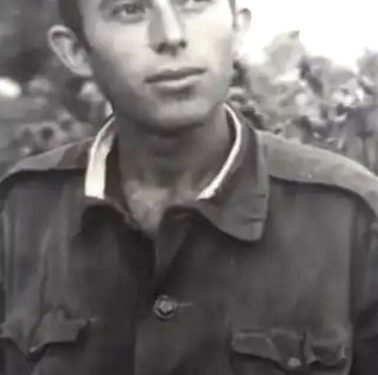
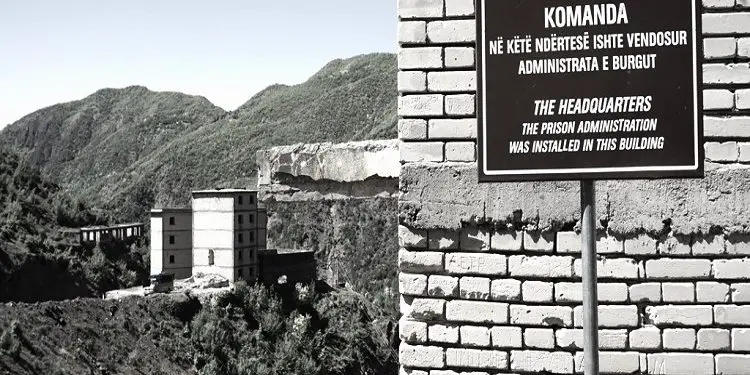
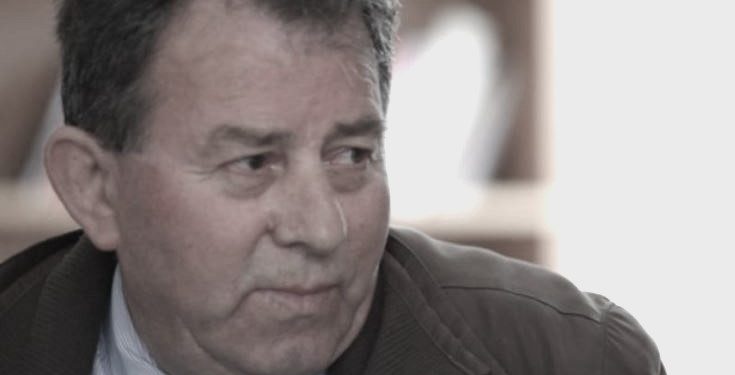
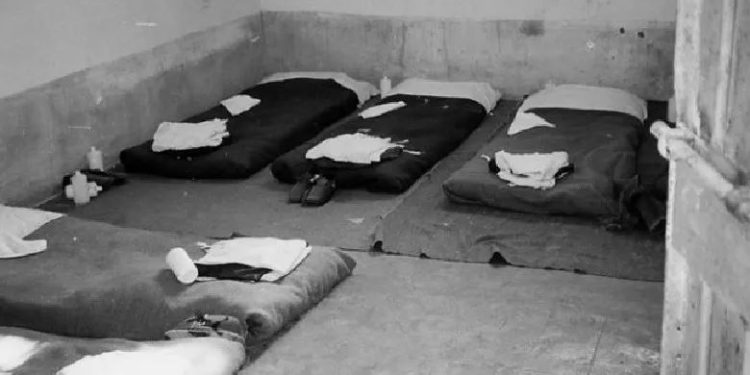
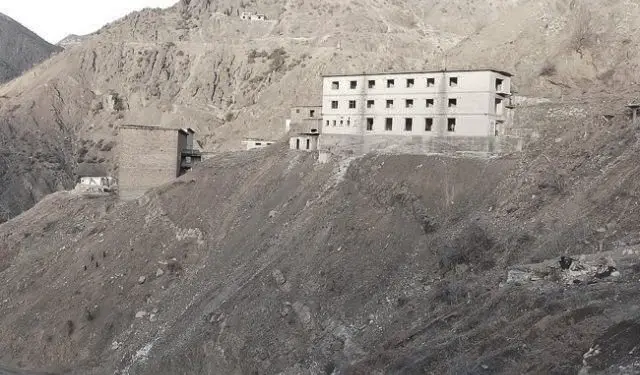
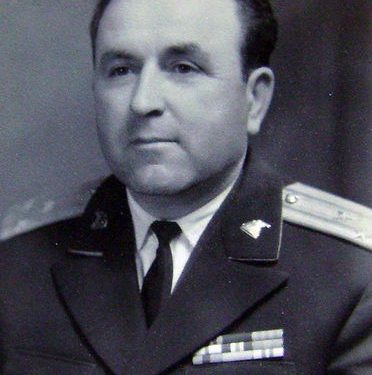



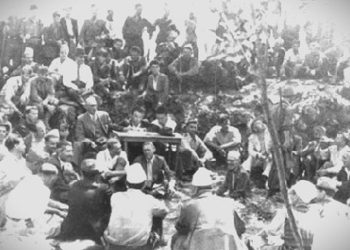
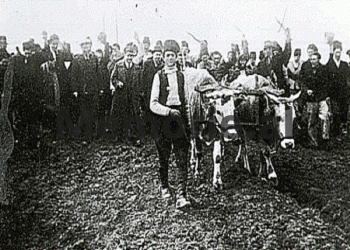
![“They have given her [the permission], but if possible, they should revoke it, as I believe it shouldn’t have been granted. I don’t know what she’s up to now…” / Enver Hoxha’s letter uncovered regarding a martyr’s mother seeking to visit Turkey.](https://memorie.al/wp-content/uploads/2026/01/Dok-1-350x250.jpg)
